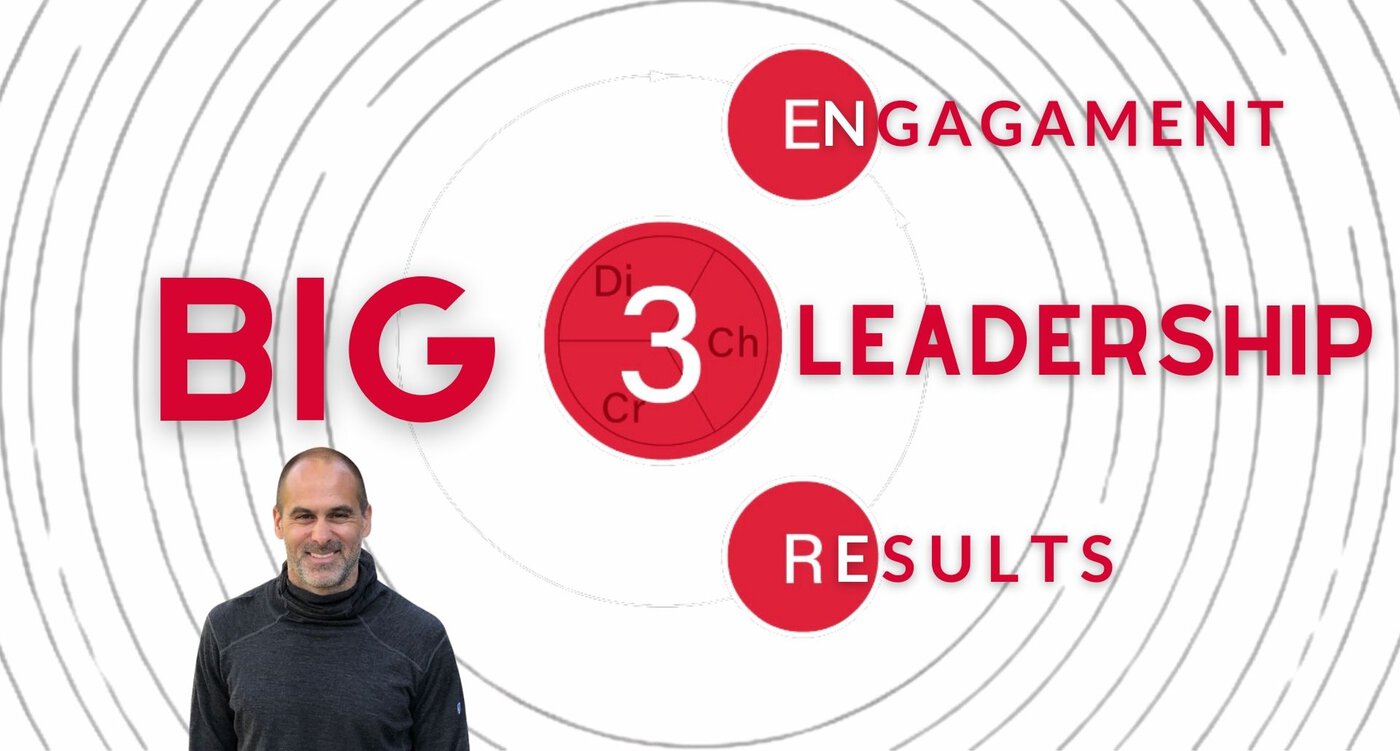Kim Scott & Dick Costolo Explore the Fallout of Poor Promotion Practices
Edited By Brandi Neal, Radical Candor podcast writer and producer, and director of content creation for Radical Candor. This article about how to...
8 min read
Kim Scott Sep 19, 2018 5:09:03 PM

 A few weeks ago I had the pleasure of being a guest on Jonathan Courtney’s podcast, The Product Breakfast Club to discuss my experiences as an author and CEO coach teaching Radical Candor in Silicon Valley and around the world. Below is a transcript of our conversation about the concepts of Radical Candor and how they can empower teams to do the best work of their lives. For those of you who’d prefer to listen than read, check out the podcast episode. I’ll let Jonathan take it from here.
A few weeks ago I had the pleasure of being a guest on Jonathan Courtney’s podcast, The Product Breakfast Club to discuss my experiences as an author and CEO coach teaching Radical Candor in Silicon Valley and around the world. Below is a transcript of our conversation about the concepts of Radical Candor and how they can empower teams to do the best work of their lives. For those of you who’d prefer to listen than read, check out the podcast episode. I’ll let Jonathan take it from here.
By Jonathan Courtney, Co-Founder of AJ&Smart, a Digital Product Design agency. Nerdy-looking Irish guy.
Jonathan Courtney: For anyone who doesn’t know, Kim Scott is the co-founder of Radical Candor, LLC, and is a well-known CEO coach in Silicon Valley. She was a member of the faculty of Apple University, where she did a lot of teaching. Before that, she worked at Google where she led AdSense, Youtube, and the DoubleClick teams. Earlier in her career, she was a co-founder and CEO of a software start-up, managed a pediatric clinic in war-torn Kosovo and built a diamond-cutting factory in Russia. Kim: you need to chill, you’re making everyone else look bad!
She also wrote this pretty spectacular New York Times bestselling book called Radical Candor: Be A Kickass Without Losing Your Humanity.
 Radical Candor was a book that just came into my life at the best possible time. It was when my agency, AJ&Smart was growing, and I was having a lot of struggles as a boss and CEO. New people were coming into the company and I was really struggling with delivering honest feedback and having hard and uncomfortable discussions that are often necessary when you’re running a company.
Radical Candor was a book that just came into my life at the best possible time. It was when my agency, AJ&Smart was growing, and I was having a lot of struggles as a boss and CEO. New people were coming into the company and I was really struggling with delivering honest feedback and having hard and uncomfortable discussions that are often necessary when you’re running a company.
Somehow, and I really can’t even remember why or where it came from, I picked up Kim’s book, Radical Candor, How to be a Great Boss Without Losing Your Humanity, and it completely blew me away. It’s honestly the best management book I’ve ever read.
If you are a manager and you have to give feedback to other human beings, buy Radical Candor. I’ll wait.
I’ve got to be honest and say that I was a little bit nervous doing this interview because Kim is a total legend, but she was really, really great interviewee. I could have chatted with her for hours and hours, asking her endless questions about her career and getting her advice on my specific situation, however, we only had 30 minutes and I was keen to GO DEEP into some of the stories she shares in the book and have her expand on them.
I wanted to pull out some key points from the conversation for this article, points which I feel that if any manager (or anyone, really) started to bring into their life then their career and working relationships would benefit massively. So here they are…
Management doesn’t come naturally to everyone
Kim Scott: You spend years becoming an engineer or even learning how to sell and yet for one of the most important jobs that any of us ever have, we get very little help.
Often if you’re hardworking and driven you’ll eventually fall into a management position, very often without training. I know for me personally there are a lot of things I wish I knew before I started managing people, and while reading Radical Candor I saw myself in so many of the situations.
It’s funny because I remember going through these things thinking it was only me experiencing this, and that the situation was unique to me and my company, but I got a huge sense of relief when reading Kim’s stories — this happens to the best of us.
One thing that I really got from speaking to Kim is that we should treat being a manager as we would any other career path — you need to train yourself and work on those skills, and it’s always a work in progress.
Care personally, Challenge Directly
One of the key messages in Kim’s book, and one of them that really stuck with me, and that I reference all the time, is the idea of caring personally and challenging directly. In the book, and when we spoke in our interview, Kim shared the story of how her manager at the time (SHERYL SANDBERG!?!) had to deliver very direct and feedback to Kim about her presentation style. The way she did it is something that had a huge impact on the rest of Kim’s career…
Kim: She never she let her concern for our short-term feelings get in the way of telling us things that we really needed to know, that we really needed to hear about. It was simple. It was challenge directly and care personally at the same time. That was the essence of good guidance, both praise and criticism.
Kim continues and importantly empathises with the fact that regardless of how ‘harsh’ it may seem, delivering candid, clear feedback is in their best interest because you care about them and their development…
Kim: Your job as a boss is to make things clear to people and very often we’ll actually say the thing, but we won’t be heard. It’s our job to make ourselves heard. Sometimes the key to making yourself heard is to take a moment and to address the emotions in the room. To reassure someone that the reason you’re telling them this thing is that you care about them and that you care about their professional growth. Very often the job of the boss is to move further out on the challenge directly dimension. Sometimes giving feedback feels like you’re having to pick up a 2” x 4″ and hit somebody over the head to get through to them…It’s unkind not to be clear.
Being nice isn’t always nice: Create an environment that evokes praise AND criticism
If you’ve read Radical Candor then you’ll be familiar with the Bob story. The heartbreaking tale of a loveable employee and teammate, who everyone has a soft spot for, but who just isn’t performing. To cut a long story short, at the risk of hurting Bob’s feelings and/or looking like a jerk in front of the rest of her team, Kim Scott avoided giving Bob honest feedback, but as time went on she realised that if she didn’t let Bob go, she’d lose some of her best performers who had become disgruntled by picking up Bob’s slack, so she fired him only to realise that he would have loved, and appreciated, to have heard this earlier so he could have changed.
Kim: I didn’t solicit guidance, praise and criticism, most importantly criticism, from Bob. I also failed to give him praise that was meaningful. The kind of praise I gave him was really just a head fake or an ego self. I failed to tell Bob when his work wasn’t nearly good enough. I failed to give Bob criticism. Probably worst of all I failed to create the kind of environment in which everyone would give Bob the kind of praise and the kind of criticism he needed to be successful in which everyone would tell Bob what was genuinely good about his work and also working with him but also would tell Bob when he was going off the rails. Because I had failed in all these different very important ways I’m now having to fire Bob because of it.
For me personally, being liked as a manager was always something I’d prioritize over most other things. Regardless of whether or not the person was underperforming, I’d prefer that they liked me rather than addressing the issue, which of course isn’t the best thing for them, the company, or their teammates.
Kim: It’s the most natural thing in the world to want to be liked. Don’t worry so much about whether or not people like you, but focus on whether or not you’re doing the kind thing for those other people. Are you putting their interests ahead of your own interests? That makes it much easier to do the things you need to do to be an effective leader because I think that very often we have this notion that we have to choose between being a total jerk and being really effective. That’s a false choice, we don’t have to make that choice.
Keep your star performers top of mind.
Something that very often happens at companies is that the managers spend most of their time dealing with troublemakers and underperformers, assuming that the stars in the company are fine to get on with things on their own. This makes sense, I get this rationale and have experienced this myself, but Kim makes a great point about why it’s important for the individual, and the company, that you don’t do this…
Kim: If you really focus on putting your time into helping the people who are doing the very best work, continue to improve on being a really good thought partner for those people, you will help not only those people, but the whole team. If you think about your time, pretend that it’s money, would it be fair to give equal bonuses to everybody regardless of performance? No, obviously, that wouldn’t be fair. The same thing is true of your time. Your time is really a valuable currency and you should invest it where you and the team are going to get the biggest returns.
Kim continues with a KILLER metaphor that I think nails this mindset perfectly…
Kim: Some people even will say, my approach to management is to hire right, and then give them full autonomy and basically ignore them. That’s like saying, the best way to have a good marriage is to marry the very right person, and then refuse to spend another moment with that person.
When I read this in Radical Candor it completely resonated with me. It inspires me a lot more as a manager to move something that is great to something who is stunningly great, rather than something that is bad to mediocre.
Kim: Management is not Marxism. You don’t need to give all your time to the people who are neediest.
Let your reports set the agenda for your 1-to-1s
A very practical (and super easily applicable) learning for me is having regular 1-to-1s with my direct reports, and letting them set the agenda for these meetings. I really like Kim’s thoughts on this…
Kim: I would remind people that anything was fair game, from strategy to furniture to stuff going on in your personal life. The one-on-one was the time I set aside for each direct report to talk to me about what was on their mind.
It’s easy as a busy manager to want to reduce meeting time and free-up space in your calendar, especially when you think the 1-to-1 might not be needed because the person is doing great, however I’m realizing the importance of keeping these things going, because it’s a space where brainstorming and problem-solving happens. A suggestion from Kim that I regularly use in my 1-to-1’s…
Kim: It shouldn’t feel like calendar clutter, or something like that. That’s why it’s useful to do it over lunch, or over a coffee or taking a walk or in some way that the human connection is more likely to be front and center, than the updates or the agenda or anything like that.
Remember to praise.
Kim: If you think about praise and criticism, praise helps people see what to do more of and criticism helps them see what to do less of.
Being totally honest, praise is something I’ve struggled with. We’ve tried a few different approaches at AJ&Smart, like bonus programmes where you can reward colleagues for doing something great, and I still haven’t found something that’s really stuck, because for me praise shouldn’t just be about making someone feel good — it should instead be about really directing people in the right direction and rewarding positive action. Kim’s advice really drove home to me the importance of praise and its impact…
Kim: Your job as a leader is to fundamentally show people what success looks like. Praise is a much more powerful tool for showing people what success looks like than criticism. Criticism just shows them what it doesn’t look like.
So to summarize…
Managing people is hard, no doubt about it, and I think any managers reading this (if they’re honest) will admit that they too have fallen short at times and can relate with Kim’s stories, however by following guidance from seasoned pros like Kim and even implementing just 1 or 2 of the suggestions, you’ll be WAY further ahead than most, and your team will notice (and appreciate) your efforts.
Full interview on the Product Breakfast Club
A version of this story was published on Medium by Jonathan Courtney.
————————————————————————————————————————————————————————————–

Edited By Brandi Neal, Radical Candor podcast writer and producer, and director of content creation for Radical Candor. This article about how to...

Amy Sandler is Principal Coach and Podcast Host at Radical Candor, where she’s also served as Chief Marketing Officer and Chief Content Officer. Amy...

Edited By Brandi Neal, Radical Candor podcast writer and producer, and director of content creation for Radical Candor. This article about Russ...